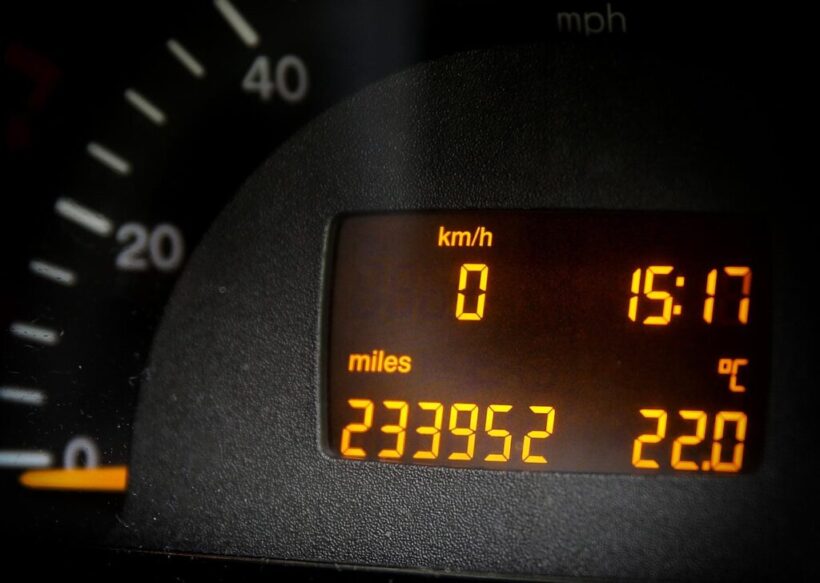Imagine coming home one evening after a long day, excited to unveil a purchase that could change your daily commute: a used car. The thrill of those initial moments often blinds buyers to lurking dangers. It’s not just about getting from point A to B; it’s about peace of mind and safety. Unfortunately, used car scams threaten that tranquility, leaving buyers feeling lost and vulnerable.
To learn more about different scams, including ones about vehicles, be sure to check out https://fakecontrol.org/.
In this article, the goal is to arm readers with strategies on how to verify information and ensure a fair deal on a used car. With actionable insights, anyone can emerge from the buying process with a reliable vehicle, steering clear of scams that plague the marketplace.
How to Verify Information and Ensure a Fair Deal on a Used Car
Before finalizing a used car purchase, it is essential to take steps that ensure a fair deal. Verifying the vehicle’s information helps in identifying potential issues and preventing scams. Two critical components of this verification process include obtaining a vehicle history report and ensuring accurate mileage verification.
Getting a Vehicle History Report
A vehicle history report provides crucial insights into the car’s past. Reputable sources, such as Carfax and AutoCheck, offer these reports, revealing information like previous accidents, repair records, and title status. Accessing this report is vital for buyers who want to engage in effective scam prevention. The findings can highlight any red flags that may indicate underlying problems, allowing for informed decision-making.
Importance of Mileage Verification
Verifying the mileage on a used car is another critical aspect that should not be overlooked. Mileage discrepancies can suggest that the odometer has been tampered with, a common tactic used in scams. By comparing the odometer reading against historical data, potential buyers can ensure that the mileage is accurate. This verification process not only builds trust but also provides a solid foundation for negotiations during the used car purchase.

Inspecting the Vehicle Thoroughly
Prospective buyers must perform a thorough vehicle inspection before closing any deal on a used car. Ensuring that every aspect of the car is evaluated can reveal hidden issues that may not be apparent during a simple test drive. An effective inspection will address both mechanical reliability and legal legitimacy.
Independent Mechanic Inspection
An independent mechanic inspection serves as a crucial step in the used car evaluation process. Enlisting a qualified mechanic to evaluate the vehicle can uncover problems that could lead to significant repair costs in the future. Key elements that should be addressed in this inspection include:
- Engine performance and condition
- Brake functionality
- Transmission health
- Suspension system integrity
- Fluid leaks and levels
This detailed assessment not only increases the buyer’s confidence but also provides a strong basis for negotiation regarding the vehicle’s price.
Checking for Signs of Title Washing
Another critical aspect of the vehicle inspection involves checking for signs of title washing. This illegal practice allows sellers to conceal a vehicle’s true history, making it appear to be a better buy than it actually is. Signs to look for during a used car evaluation include:
- Inconsistent mileage records
- Missing or incomplete title documentation
- Discrepancies between the Vehicle Identification Number (VIN) and DMV records
- Altered titles or inconsistent branding
By closely examining these elements, buyers can significantly reduce their chances of acquiring a problematic vehicle that hides a shady past.
| Inspection Component | Mechanic Inspection Focus | Signs of Title Washing |
| Engine | Check for wear and performance issues | Inconsistent engine repair records |
| Brakes | Assess functionality and wear | Missing service records |
| Transmission | Look for smooth operation | VIN inconsistencies |
| Suspension | Evaluate integrity and wear | Altered title documents |
| Fluid Leaks | Identify any leaks | Unknown previous accident reports |
Selecting Reputable Dealerships

When seeking a used car, selecting reputable dealerships greatly reduces the chances of falling victim to scams. One valuable option is to consider certified pre-owned vehicles, which come with rigorous inspections and added assurances regarding quality and reliability. Being informed about the benefits of such vehicles can enhance the buying experience.
Benefits of Buying from Certified Pre-Owned Vehicles
Certified pre-owned vehicles offer a variety of advantages that make them an appealing choice for buyers:
- Thorough inspections conducted by certified mechanics.
- Warranty coverage that offers peace of mind.
- Vehicle history reports that ensure transparency.
- Reliable performance and condition due to manufacturer standards.
Identifying Signs of a Trustworthy Dealer
Recognizing trustworthy dealer signs can lead to a smoother purchasing experience. Buyers should consider the following criteria when evaluating used car dealers:
- Look for certifications from respected automotive organizations.
- Read customer reviews for firsthand experiences with the dealership.
- Ask for dealer licenses to verify legitimacy.
- Assess the dealer’s reputation within the community.
Researching local dealerships prepares buyers to make informed choices and helps to avoid private sellers who might not follow legal obligations.
Strategic Negotiating Tactics

Effective negotiating tactics play a crucial role in securing a fair deal when purchasing a used car. This process begins with comprehensive market pricing research. Knowing the fair market values helps buyers make informed decisions and develop a strong negotiating position.
Researching Market Pricing
Buyers should leverage reliable sources like Kelley Blue Book and Edmunds to ascertain the fair pricing for specific makes and models. By understanding current market rates, they can identify reasonable offers from sellers and recognize when prices deviate unjustly from these benchmarks.
Understanding Financing Options and Warranty Coverage
A thorough grasp of financing options enhances a buyer’s ability to negotiate effectively. Familiarity with available loans and interest rates not only improves confidence but also allows for a more strategic discussion with the dealer. Furthermore, knowing various warranty coverage plans significantly contributes to the overall value of the car purchase. Buyers should consider negotiating warranty coverage as part of their agreement, ensuring they receive adequate post-sale support and peace of mind.
Conclusion
Understanding the landscape of used car buying is vital for anyone looking to make a secure investment. By employing effective strategies to verify vehicle history, buyers can avoid scams and ensure they are making informed decisions. Utilizing resources like vehicle history reports and conducting thorough inspections lays the groundwork for safe purchase strategies that minimize risks.

